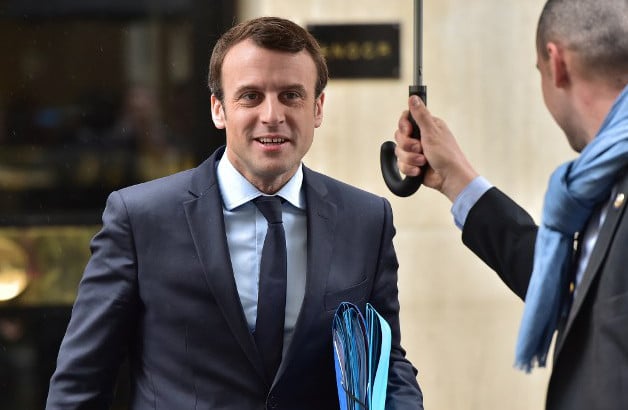Macron's team had earlier announced that the candidate had lodged an official complaint over “the spreading of false information” to try to influence the result of an election.
The complaint was filed the morning after a memorable live TV debate between the two presidential election candidates.
During one particularly heated exchange in a debate marked by insults and invective the pair argued about the legal issues they faced.
After Macron said it wasn’t him that was under investigation by police, referring to the fake jobs allegations facing Le Pen, the far right candidate replied: “I hope we don’t discover you have an offshore account in the Bahamas.”
Macron warned her that her suggestion was “defamation”.
Judicial sources told AFP prosecutors in Paris had opened a probe following the complaint from Macron, which comes three days before Sunday's presidential run-off vote.
A source close to the case told AFP, the complaint targets “information that circulated Wednesday night on the internet” alleging tax evasion in the Bahamas.
Marine Le Pen admitted on Thursday morning on French radio that she had no proof of any account in the Bahamas.
Later on Thursday a member of his entourage said “we will not hesitate to launch defamation proceedings against anyone who repeats this false information.” They also released an eight page document in a bid to demonstrate the rumours were just fake news.
Macron's campaign team called it a “textbook case” of “fake news”, saying it was spread on Twitter by accounts close to Kremlin-friendly news sites like Sputnik and RT as well as supporters of US President Donald Trump.
Le Pen hit back on French radio on Friday saying she was “not at all” the target of the legal suit and her National Front (FN) party had “absolutely nothing to do” with the rumours.
For his part Macron also took to French radio to rubbish the rumours.
“I have never had accounts in any tax havens whatsoever, firstly because it is not in my nature and secondly because I have always wanted to return to the public domain,” the former minister of the economy told France Inter radio.





 Please whitelist us to continue reading.
Please whitelist us to continue reading.